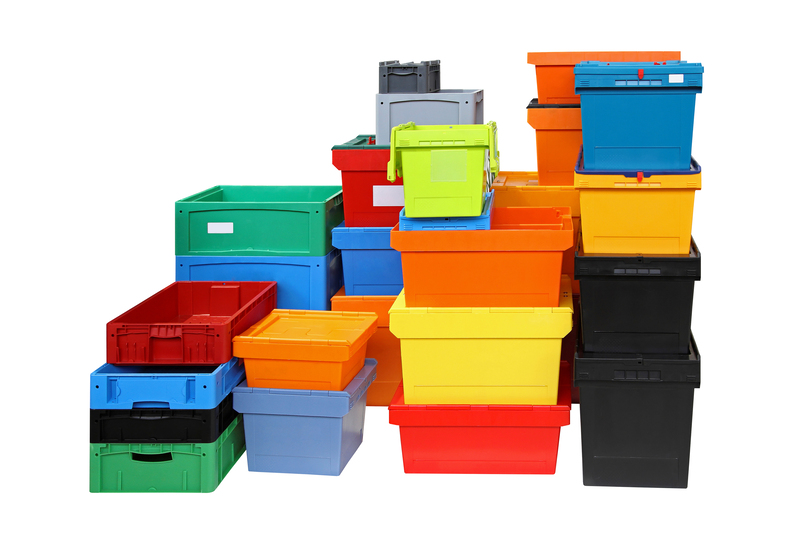How to maintain your freezer's lifespan by storing it right
Posted on 21/05/2025
How to Maintain Your Freezer's Lifespan by Storing It Right
If you want your freezer to last for years and perform optimally, there's more to it than just plugging it in and filling it up. Proper freezer storage isn't just about arranging your food neatly; it's about preserving your investment, protecting your food quality, and keeping your energy bills in check. In this guide, we'll cover how to maintain your freezer's lifespan by storing it right, providing practical advice and deep insights that make a real difference.
Why Proper Storage Matters for Freezer Lifespan
Your freezer is a hardworking appliance, operating nonstop to keep your food safely preserved. Overloading, poor organization, or incorrect storage methods can lead to breakdowns, inefficiency, and shorter appliance life. Let's explore why storing your freezer correctly is essential for:
- Extending your freezer's operational lifetime
- Maintaining consistent freezing temperatures
- Preventing excessive energy consumption
- Reducing the risk of costly repairs
- Keeping your food fresher for longer
How Poor Storage Can Damage Your Freezer
When a freezer is improperly packed, it forces the motor and cooling components to work harder than necessary. Common mistakes such as overloading, blocking vents, and letting ice build up can cause:
- Compressor failure
- Inefficient cooling
- Increased frost buildup
- Premature wear and tear of parts

Best Practices for Storing Food in Your Freezer
To truly prolong your freezer's lifespan, you need to be strategic about what goes in, how it's arranged, and what storage methods you use. Here's a comprehensive guide to make sure your freezing practices work for your freezer, not against it.
1. Don't Overload or Underload the Freezer
- Don't Overfill: Overloaded freezers restrict airflow, causing uneven freezing and overworking the compressor. Avoid packing food so tightly that air cannot circulate freely.
- Don't Leave It Almost Empty: A near-empty freezer isn't energy-efficient. Air retains temperature poorly, causing the motor to run more frequently to re-freeze the warm air that enters when you open the door. Keep your freezer about three-quarters full for optimal efficiency.
2. Organize Food for Accessibility and Efficiency
- Group Items by Category: Store meats, vegetables, ready-to-eat meals, and baked goods separately. Use bins or baskets if possible.
- Label Everything: Clearly mark dates and contents, so you can use up older items first and avoid food waste.
- Practice FIFO (First In, First Out): Place newer items at the back and move older items to the front to maintain rotation.
3. Allow Space Around Vents
Freezers come with air vents designed for optimal circulation. Blocking these vents means cold air can't flow evenly, leading to overuse of the motor and uneven temperatures, which hurts your freezer's performance and lifespan.
4. Freeze Food in Small Portions
- Quicker Freezing: Smaller packages freeze and thaw more quickly and evenly, retaining freshness and texture while easing the burden on your freezer.
- Space Efficiency: Small, flat packages are easier to stack and organize.
5. Avoid Storing Hot Foods
Never put hot food directly into your freezer! It raises the internal temperature, making your freezer work harder. Always let hot dishes cool to room temperature before you freeze them to prevent overheating and condensation inside your appliance.
6. Use Proper Containers and Packaging
- Use Airtight Containers: Quality, airtight, and freezer-safe containers--or heavy-duty freezer bags--prevent freezer burn, preserve food quality, and reduce the risk of spills.
- Avoid Glass: Unless the glass is labeled as freezer-safe, it can crack or shatter when frozen.
Defrosting and Cleaning: Essential Storage Maintenance Tips
Over time, ice can build up--even in frost-free models--if the door is frequently opened or air moisture gets trapped inside. This not only reduces storage space but also hampers efficiency. Here's how to keep your freezer clean and working smoothly:
Manual Defrosting Steps
- Unplug the Freezer: Safety first--always disconnect before defrosting.
- Remove Food: Place food in coolers or insulated bags to temporarily preserve them.
- Melt Ice Safely: You can wait for ice to melt naturally, or use trays of hot water to speed up the process--never use sharp objects.
- Wipe and Dry: Clean interior surfaces with warm, soapy water, then dry thoroughly before plugging back in.
Cleaning Tips for Optimal Performance
- Regularly wipe down shelves and gaskets to remove spills or residue.
- Clean the exterior and underneath the appliance to clear away dust--this helps the motor cool efficiently.
- Check and clean the freezer's air vents to prevent dust build-up, which may block airflow.
Placement and Environmental Factors Impacting Freezer Longevity
Where and how you position your freezer makes a significant difference in its lifespan. Keep the following guidelines in mind:
1. Avoid Hot or Humid Locations
Placing a freezer next to heat sources or in direct sunlight makes the motor work extra hard, shortening its functional life. Instead, choose a cool, dry, well-ventilated location.
2. Leave Sufficient Clearance
- Rear and Side Spacing: Leave at least 2-3 inches of space between your freezer and the wall to allow heat to dissipate.
- Don't Block the Top: Give extra room above the freezer for ventilation and easy access.
3. Level the Freezer
A properly leveled freezer ensures the door seals tightly, which is crucial for maintaining internal temperatures and energy efficiency. Use a spirit level and adjust the feet if needed.
4. Protect from Power Surges
- Use a surge protector to defend your freezer's electronics and motor from voltage spikes.
Smart Habits That Help Prolong Freezer Life
Integrate these habits into your routine to maximize your freezer's lifespan:
- Close the Door Properly: Make sure the door seals completely each time you close it. A crack lets warm air in, leading to frost build-up and energy loss.
- Check the Door Gaskets: Regularly inspect rubber seals for cracks or deterioration. Replace faulty gaskets to retain cold air.
- Monitor Temperatures: Set and maintain optimal freezing temperatures (typically -18?C or 0?F).
- Listen for Unusual Noises: Rattles, squeaks, or clicking can signal mechanical problems. Address these promptly.
Storing Non-Food Items: What to Avoid
Freezers are sometimes used to extend the life of non-food items such as batteries, film, or certain medicines. However, improper storage of non-edibles can compromise freezer performance and contaminate food. Always check manufacturer guidelines before freezing anything other than food or beverages.
Dealing With Power Outages and Defrosting
During a power outage, refrain from opening your freezer. A full, properly packed freezer can keep food safely frozen for about 48 hours. Once power returns, check temperatures and only refreeze items that still contain ice crystals.
Common Freezer Storage Mistakes to Avoid
- Storing Uncovered Food: Leads to freezer burn and odors.
- Packing with Unlabeled or Undated Items: Causes waste and confusion.
- Ignoring Routine Maintenance: Skipping defrosts and cleaning leads to reduced efficiency.
- Allowing Ice Build-Up: Reduces storage space and cooling performance.
- Overlooking Temperature Fluctuations: A faulty seal or unstable setting can shorten the freezer's life and spoil contents.

Routine Maintenance and Checkups
Establish a routine for periodic inspection and maintenance. Every three to six months:
- Check for frost buildup
- Wipe down seals and interior surfaces
- Inspect and clean condenser coils (following manufacturer instructions)
- Confirm ideal operating temperature with a freezer thermometer
Conclusion: Maximizing Your Freezer's Longevity Through Smart Storage
Mastering how to maintain your freezer's lifespan by storing it right is about more than freezer organization--it's about protecting a major home investment. By implementing the above strategies--from correct food packaging and arrangement to diligent cleaning and smart placement--you ensure efficient operation, food safety, and years of reliable service from your freezer. Adopt these habits today and enjoy both savings and peace of mind tomorrow.
Remember: Your freezer works best when you store it right! For the best results, revisit these tips regularly and treat your freezer to the care it deserves.
Latest Posts
Essential Tips for Pre-Move Out Cleaning
Transform Chaos to Calm: Declutter for a Stress-Free Move
Unlock the Secrets to Properly Packing for Your House Move
Move with Confidence: Tips for a Calm Transition
From Keys to Keys: Why Professional Piano Movers Are Essential
